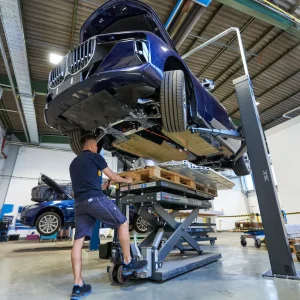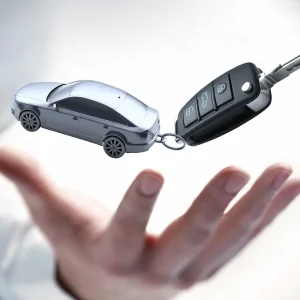The increasing amount of data coming from cars is presenting new challenges for fleet managers. So much so that, in fact, leasing company Arval’s UK managing director, Benoit Dilly, has told BusinessCar that a more virtual fleet manager could be closer than we think.
While ensuring a far more visible fleet, the masses of data coming from fleet cars is creating an even more taxing job for fleet managers, who may be struggling to find time to analyse the data.
But by offering an end-to-end telematics service, Arval is creating the potential for more of a virtual proposition to take the burden off the fleet manager. Arval leases a total of around 160,000 cars in the UK and in recent years has offered what it describes as end-to-end outsourced leasing to its fleet customers.
This means the company is able to support fleets right from the initial lease all the way through to the end of the contract, opening up the potential for an increasingly virtual solution while decreasing the workload on the fleet manager – something Arval believes is the way the fleet landscape is heading.
Through its telematics offering, Arval is able to analyse the fleet data and send the customer sophisticated feedback and even advice on what to do to improve the overall efficiency of their fleets. “Fleets are getting more and more complex, not only in terms of managing cars, but also the data that is coming out of telematics,” explains Dilly.
“Fleet managers don’t currently have the time or appetite to manage all of this properly, let alone the expertise, despite potentially knowing how it should be done. For this reason, they are just carrying out quick fixes and not managing their fleet at an optimum level, meaning that the monitoring that could be taking place to increase fleet safety or reduce emissions, for example, which could be saving the fleet money, is unfortunately not taking place.
“With the powerful data now available to fleets via telematics, we offer what we call a completely outsourced service. This offering pools all of the information on a fleet together to come up with an optimised fleet management service, meaning that if they wanted to choose to do so, our customers don’t even need a fleet manager anymore. The fleet management can be done virtually.”
Dilly explains that the solution offered by Arval currently represents more or less 45% of Arval’s customer fleet and that he only expects this to further increase in the future. However, Dilly also noted that this realisation from fleets is bound to take time and that most fleets will not be ready to give up their fleet manager just yet.
“Instead it is a step-by-step approach,” he says. “If you’re a big fleet you want to make sure you’re making the right choice, and usually with the amount of data available to these companies on their drivers it will be a sensible decision. We are trying to build this approach of a more virtual fleet manager to customers, which will probably not be completely outsourced straight away but over time.”
Through enhanced operation and reporting tools offered by Arval, Dilly believes the industry will be able to manage this increased digital trend without the strain of trying to understand and break down data for fleet analysis: “In the future, we will also be focusing on an app where if you’re a company customer you can see when your next MOT is due and where to go if you’ve had an accident, for example. As the industry is becoming more digital, so will the way that the fleet is managed, and we are right at the front of this trend, ready to assist fleets to move forward in this direction.”





